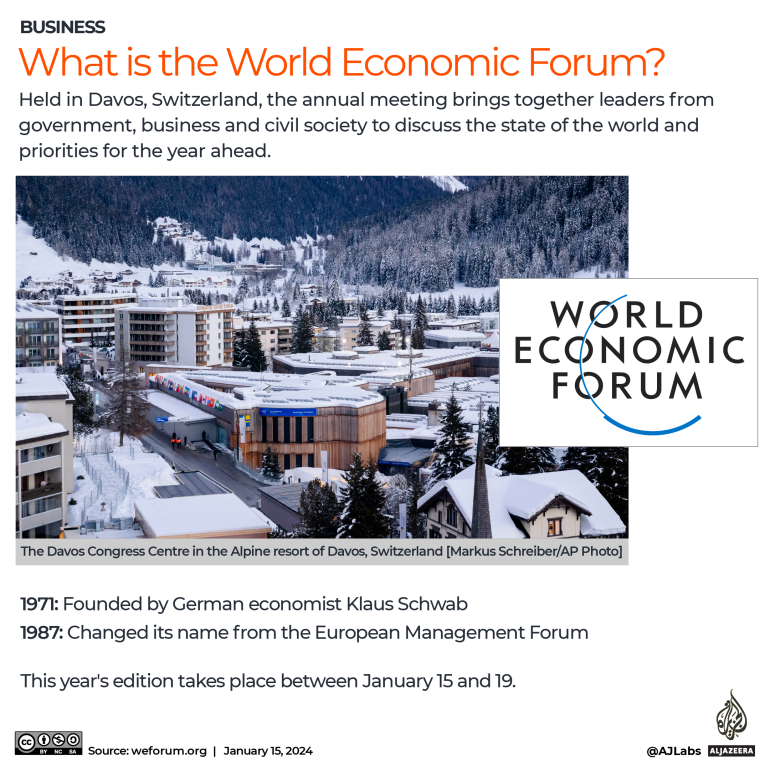Geopolitics, AI to slow global economy, grow inequality: Davos survey
Economists predict weakened global economic conditions while technology will help promote differences across regions.

Geopolitical strife and tight financing conditions will slow global economic growth, while artificial intelligence (AI) will increase inequality, according to leading economists.
The survey, released by the World Economic Forum (WEF) on Monday before its annual meeting in the Swiss resort of Davos, weighed the analysis of 60-plus chief economists from both the private and public sectors.
Keep reading
list of 4 itemsHave the Houthi Red Sea attacks hurt Israel’s economy?
Egypt’s economy will be its biggest challenge during el-Sisi’s third term
How might voters change the global economy in 2024?
More than half of the economists surveyed (56 percent) predict weakened global economic conditions but with differences across regions.
The majority foresee moderate or stronger growth in China and the United States, weak or very weak growth in Europe, and at least moderate growth in South Asia, East Asia and the Pacific.
“While technological advances may give new impetus to global productivity, policies that enhance good-quality growth are needed to revive global momentum and balance the impact across the income groups,” the survey stated.
Additionally, 70 percent of those surveyed expect financial conditions to loosen as inflation ebbs and the current tightness in labour markets eases, despite the world’s top central banks saying that interest rates have peaked.
AI is predicted to affect the world economy unequally. Overall, 94 percent of economists surveyed expect AI to radically boost productivity in high-income economies over the next five years, but just 53 percent predict a similar effect for low-income economies.
Alongside geopolitical developments, the effect of AI is expected to stoke volatility in the global economy, 87 percent of economists predict. Six out of 10 (57 percent) also expect these conditions to increase inequality and widen the North-South divide in the next three years.
Separately, the WEF released a study on the “quality” of economic growth across 107 economies, coming to the conclusion that most countries are growing in ways that are neither environmentally sustainable nor socially inclusive.
“Reigniting global growth will be essential to addressing key challenges, yet growth alone is not enough,” said Saadia Zahidi, managing director of WEF.
Technology will take up a large part of the agenda at Davos this year, with the theme of AI “as a driving force for the economy and society” to have about 30 separate sessions.
